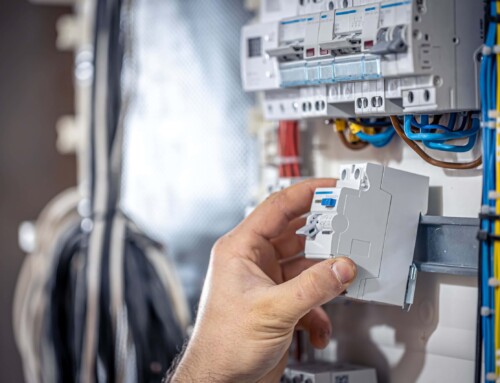Winter has set in. Nobody understands the wrath of the colder months more than the electricians. Because these are the people who are out in the field keeping their service up and running when others are keeping themselves warm in their houses. During these cold conditions, electricians need to make electrical safety a priority. Here are some working strategies that should be implemented by the electricians out in the field doing their jobs in cold winter months:
1.Understand the health hazards
It is important to fully understand the health hazards that come with the winter months. There are significant illnesses that develop during the colder months due to a phenomenon called cold stress. According to the Occupational Safety and Health Administration (OSHO), cold stress occurs when the body temperature becomes low, making it more vulnerable to extreme weather conditions. Frostbite is one of the common winter-related conditions. Others are:
Hypothermia: It is characterized by symptoms like fatigue, shivering, and loss of coordination. In the later stage, the person may experience difficulty in breathing and may even lose consciousness.
Trench foot: This condition is a result of prolonged exposure to cold weather without proper insulation (wearing water-resistant shoes and outerwear). The skin gets abnormally red and numb. There may be blisters and bleeding beneath the skin. In an advanced stage, gangrene may develop, which may lead to limb loss or even death.
The symptoms of these conditions may be severe, but prevention is fairly simple. Follow these simple tricks to avoid cold stress and the medical complications that can come with it:
- Wear appropriate clothing
- Maintain reasonable working hours
- Stay warm, covered, dry and hydrated
2.Wear proper safety gear
The gloves, the electricians wear may reduce the risk of an electric shock but may not be warm enough to keep frostbite at bay. Bulky layers of clothing may protect them from hypothermia but may not provide protection from a wire or an electric shock. Therefore, choosing appropriate clothing that is designed to keep you warm and also protect you from your regular job hazards is imperative.
Some protective gear options are:
- Insulating socks
- Moisture-wicking thermal underwear
- A liner cap inside your hat
Note: These protective gears should not have meltable fibers in them.
3.Be careful of areas that aren’t weatherized
During winters, in areas that are not weatherized, there’s a possibility of snow or ice being accumulated. That means there are high chances of slipping and falling, which can result in a bruise, sprain or broken bones. When in areas that aren’t weatherized, make sure that you adhere to the safety guidelines outlined by OSHO.
4.Know when to back off
Seasoned electricians love to challenge themselves and brave conditions however grave they may seem. Unfortunately, the mind may be willing, but the body is not conditioned to survive such grave circumstances. It is therefore important that the electricians know their limits, and back off if they see their safety being challenged.
5.Learn first aid
While strict safety protocols are outlined, it is important that they are being implemented at workplaces. Companies should give their employees training on basic medical knowledge that can work as first aid when a worker develops serious complication while out in the field.
- If suffering from trench foot, the worker should immediately be moved to warm areas, their footwear has to be taken off and their feet should be dried off.
- If suffering from frostbite, then the worker should immediately be stopped from using the affected extremities and should be kept warm by using body heat or immersing them in warm water.
When workers are faced with medical emergencies in the cold unforgiving winter, this knowledge can save lives.
OSHA’s Cold-Weather Safety Checklist
- Know what cold stress is, its symptoms (hypothermia, dehydration, and frostbite) and how to monitor it.
- Dress appropriately for the cold, always.
- Stay dry in the cold. The rate at which the body loses heat from sweating is higher where there is moisture or dampness.
- Keep a spare pair of clothing in case the one you are wearing gets wet.
- Drink warm and sweetened fluids.
- Adhere to safe work practices, use proper controls and wear personal protective equipment (PPE) provided by your employer.
Winter weather can be dangerous. These simple precautions can keep you out of danger. If you need more information on how to protect electricians from winter weather or simply would like to sell or buy electrical materials, get in touch with D&F Liquidators today!

D&F Liquidators has been serving the electrical construction materials needs for more than 30 years. It is an international clearinghouse, with 180,000 square facility located in Hayward, California. It keeps an extensive inventory of electrical connectors, conduit fitting, circuit breakers, junction boxes, wire cable, safety switches etc. It procures its electrical materials supplies from top-notch companies across the globe. The Company also keeps an extensive inventory of electrical explosion proof products and modern electrical lighting solutions. As it buys materials in bulk, D&F is in a unique position to offer a competitive pricing structure. Besides, it is able to meet the most discerning demands and ship material on the same day.






